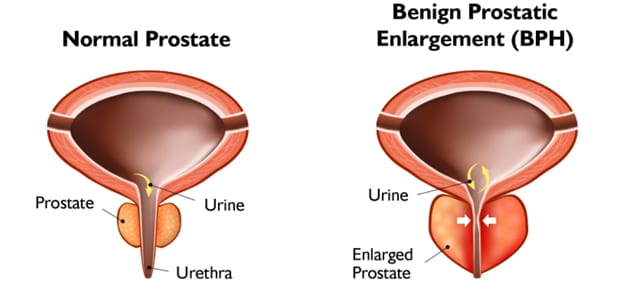What is BPH?
Understanding the Importance of Your Prostate
Many men do not understand what their prostate does and how it can affect their lives. The prostate is a small gland that is about the size and shape of a walnut and is located below the neck of the bladder. The urethra runs through the center of your prostate, from the bladder through the penis, letting urine flow out of the body.
Your prostate is a male reproductive organ. The main function of your prostate is to produce prostatic fluid. The prostatic fluid is an alkaline fluid secreted by the prostate gland during ejaculation that forms part of the semen.
Your prostate can become larger as you age and usually begins to grow around the age of 40 to 50; this is a normal part of aging. Eventually, this growth can lead to Benign Prostatic Hyperplasia, better known as BPH.

Benign Prostatic Hyperplasia, or BPH, is a condition in which the prostate enlarges as men get older. BPH is a very common condition that affects more than 42 million Americans and more than 500 million aging men worldwide. More than 40% of men in their 50s and more than 70% of men in their 60s have BPH. While BPH is a benign condition and unrelated to prostate cancer, it can greatly affect a man’s quality of life.
As the prostate enlarges, it presses on and blocks the urethra, causing bothersome urinary symptoms such as:
- Frequent need to urinate both day and night
- Weak or slow urinary stream
- A sense that you cannot completely empty your bladder
- Difficulty or delay in starting urination
- Urgent feeling of needing to urinate
- A urinary stream that stops and starts
If you suffer from the above symptoms, you are not alone. BPH is the leading reason men visit a urologist.